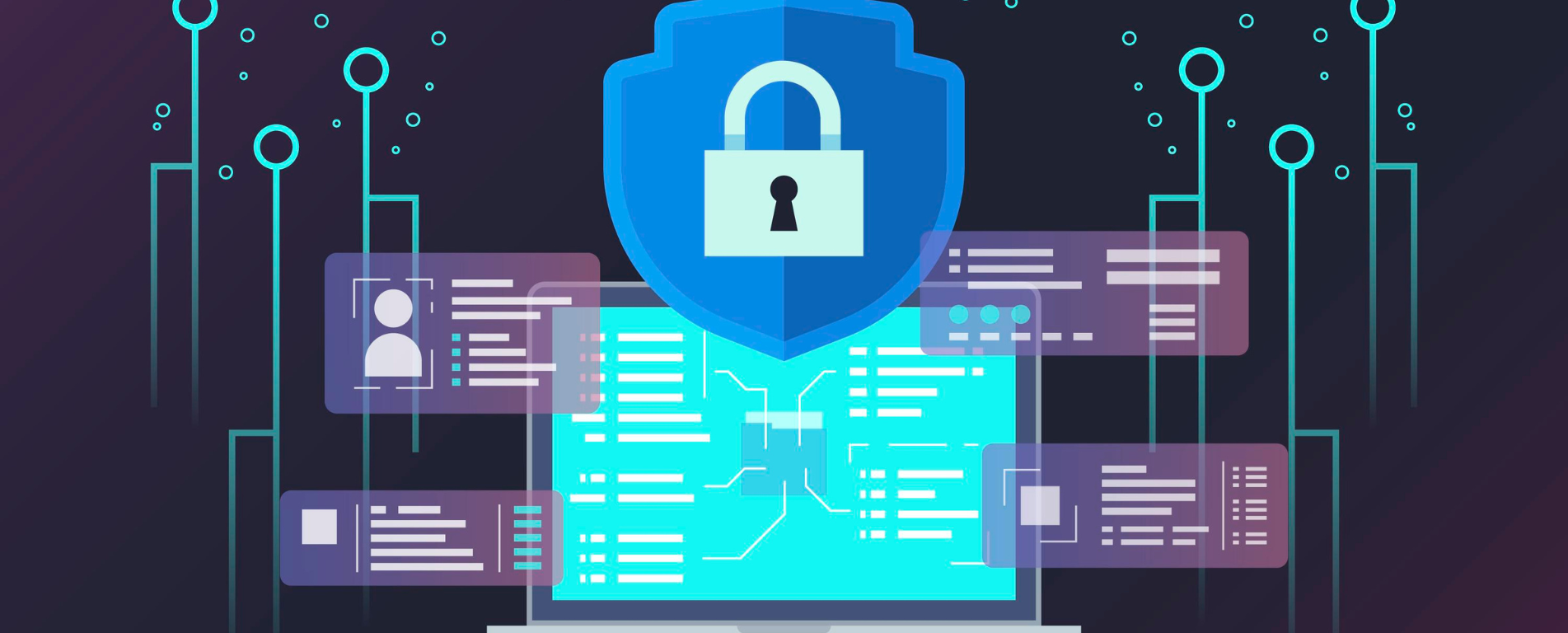- 2017: A ransomware attack, a variant of SamSam, makes the Montgomery County District Attorney’s Office dysfunctional.
- May 2025: A cybersecurity attack cripples various public systems in the state of Alabama.
And such incidents are countless!
Montgomery County, especially, always faces a gamut of cybercrime issues, such as:
- Data breaches
- Ransomware
- Phishing
Despite the Montgomery Police Department having a dedicated cybercrime unit, these problems keep occurring repeatedly.
Nevertheless, as a professional or a person who needs to deal with the digital world on an everyday basis, we need to understand the Montgomery cyber security laws, including the Computer Fraud and Abuse Act.
These laws have clear cybersecurity regulation outlines for maintaining compliance and combating digital threats.
Hi, in today’s blog, we will discuss the Montgomery cyber security laws and regulations to bolster our stand against cybercrimes.
Key Montgomery Cyber Crime Laws And Regulations
The table below explains the key Montgomery cyber crime laws.
| Montgomery Cyber Crime Laws | Functions |
| Computer Fraud and Abuse Act (CFAA) | Prevents unauthorized computer accessBuilds the foundation of Montgomery cyber crime laws |
| The Maryland Personal Information Protection Act (PIPA) | Mandates business data protectionMandates for breach reporting |
| The Electronic Communications Privacy Act (ECPA) | Protects digital communication |
Moreover, the Maryland Cybersecurity Council develops anti-cyber threat strategies.
Compliance with these laws means enhanced cybersecurity and protection against digital crimes.
What Are The Legal Penalties For Montgomery Cyber Crime Offenses?
Montgomery cyber security penalties include fines, which are used for restitution to victims.
Furthermore, the penalties include different imprisonment terms based on the severity of the crime.
Probation or parole terms may also affect how one serves one’s sentence. Understanding the legal consequences of cyber crimes in Montgomery County is crucial for defendants.
1. Fines And Restitution
Montgomery County cyber crime penalties mean straightforward fines and restitution. Fines depend on offense severity:
- Minor offenses incur hundreds.
- Moderate ones thousands.
- Severe offenses tens of thousands.
Restitution means repaying victims for their financial losses.
Knowing these penalties helps navigate legal and financial responsibilities.
2. Imprisonment Duration Factors
In Montgomery County, the duration of imprisonment for cybercrime is influenced by factors such as the crime severity, the criminal’s history, and the presence of aggravating factors.
A minor offense carries a lighter sentence, while more serious breaches like identity theft and financial loss require longer terms.
A first-time offender would receive a lighter sentence than a repeat offender. If the victim is vulnerable and without showing remorse, the sentence of imprisonment will be increased.
Your intention, willingness to apologize, and other situations will have great effects on the length of your sentence.
3. Probation And Parole Conditions
Probation and parole conditions for cybercrime in Montgomery County have no fixed pattern but are rather shaped depending on the offense as well as the offender’s previous history.
You have to be prepared for frequent encounters with the probation or parole officer who will be looking to see if you are complying with them.
Access to the internet may be limited in particular if the violation is related to the use of the computer.
Besides, it may be necessary for you to compensate, in cash, the victims for what they lost due to your wrongful act. You could also be required to perform a certain number of hours of community service as a form of reparation.
The goal of these modified conditions is very simple: to prevent future offenses and ensure adherence to the law.
Common Types Of Montgomery Cyber Security Crimes
The most common types of cyber crimes are phishing and identity theft, which definitely involve the gaining of information by deceit from people.
Privacy invasions by an unauthorized party may result in the leakage of confidential information.
And guess what? The malicious software and ransomware are the means of carrying out such endeavors without interruption and issuing high ransom demands.
Recognizing these electronic dangers is essential for the protection of the data of all entities, whether they be personal or organizational data.
1. Phishing And Identity Theft
Cybercriminals use phishing and identity theft tricks to get personal information from people.
They create fake emails or messages that look like they are from the organizations you trust. Just by clicking on links or downloading files, you might give sensitive information without being aware of it.
Here are some tips that ight make things much easier for you:
- Check the sender’s email or info before clicking on any link.
- Make complicated passwords and change them frequently.
- Regularly update antivirus and anti-malware software to ensure new threats can be detected.
- Know the newer phishing tricks so that you do not fall prey to them.
Apart from the ones that I have mentioned above, you need to be alert! And THAT’S a complete non-negotiable.
Why?
Well, as simple as it sounds, it helps to make sure that no one gets access to your information without your permission. Additionally, it ensures that you are able to keep your personal information safe.
2. Unauthorized Data Access
Cybersecurity violations due to unauthorized access to data are the most serious risks in the field of cybersecurity. Here, in this matter, they are concerned with car theft and the theft of electronic devices.
Let me give you an example, for instance, that passwords or financial information are stolen without the owner’s knowledge.
Thus, in order to keep yourself safe,
- Set long, complex, and a different password for each account
- Confirm to do a two-step verification
- Install new versions of the program
- Be prudent in the matters of personal data that you give to the Internet.
Besides, follow up with cyber security regulations and you will avoid the intrusion of your privacy.
And trust me when I say this, Monyogomery County will also enforce realy strict laws. These are generally the ones that are against offences that are related to breach of privacy.
And as a result of that, understanding these laws can help you recognize data risks and seek legal support if needed.
3. Malware And Ransomware Attacks
Malware and ransomware attacks are definitely cyber threats that can carry out illegal activities against businesses without their knowledge and also make them lose their personal data.
Besides that, malware sneaks into PC systems using email attachments or downloads, and is a very dangerous thing for the data.
In contrast, ransomware is the kind of malware. It mainly locks files and forces one to pay for their release.
Besides that, phishing means the way that cybercriminals find to get you fooled so that you would be willing to give out your personal information by means of fake emails or websites.
Likewise, backdoors are the ways used by unauthorized people to gain access to your system without your permission, and then the original malware is the one that helps them do that.
Strategies For Montgomery Cyber Crime Prevention
In the most effective way to fight cybercrime safely, it is necessary that computers be secured with passwords that are strong, unique and the use of two-factor authentication also needs to be there.
Carry out regular updates of software and antivirus programs so that the security holes can be plugged.
Do not be reckless at all while clicking on any links or opening attachments. Also, ensure that it is only from people or sources that you know.
Reading about the working of a phishing scam and the possible cyber threats will help you to identify the suspicious actions and thus, react properly.
Be sure that you always have a copy of your files that are backed up in a safe place so that they remain safe in case of any loss. A VPN is one of the ways you can protect your online privacy while you use public Wi-Fi.
You will be constantly updated with the latest trends and prevention strategies, as a result, you will become more vigilant and aware of the threats.
Nevertheless, the list is still far from being complete! Besides that, these measures mean enhanced protection against potential cyberattacks.
How To Respond To A Cyber Crime Incident In Montgomery
Facing a cyber crime incident means acting quickly. First, remain calm and evaluate the breach’s severity.
Then, follow these steps:
- Disconnect devices from the internet to stop further data loss or unauthorized access.
- Document the incident and note timestamps, suspicious activities, and communications.
- Notify your IT or cybersecurity team to start containment and recovery.
- Report to authorities and contact local law enforcement or a cyber crime agency. Prompt reporting helps track criminals and recover losses.
Swift action mitigates damage.
Resources And Support For Montgomery Cyber Security Victims
Navigating the aftermath of cyber crime in Montgomery County means contacting local law enforcement, who can guide you through the legal process and connect you to cyber crime units.
The Cyber Crime Support Network means access to resources for victims.
Also, if financial theft occurs, contact your bank’s fraud department.
Furthermore, for emotional support, consult a counselor experienced in cyber crime.
If you’ve been charged with cybercrime or associated with a computer crime, it’s critical to consult an experienced cyber crime attorney in Pennsylvania to understand the penalties you may face. These resources mean you’re supported and not alone.
Montgomery Cyber Security Laws: Your Legal Guide To Stay Informed
To be aware of the cyber crime laws in Montgomery County, it is essential to know the Computer Fraud and Abuse Act as well as the Maryland Personal Information Protection Act.
Strong passwords and up-to-date software are like strong shields against cyber attacks.
In case of a cyber crime, reporting it without any delay and utilizing the resources that are at your disposal will help you tackle it.
Being in the know and ready is equivalent to drastically decreasing your risk and protecting your digital properties.
Read Also:
















